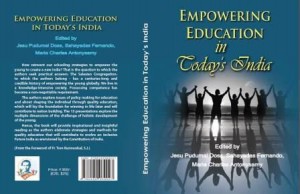Selvam, S.G. (2015). The methodology of Indian education: An autoethnographic assessment. In J. P. Doss, S. Fernando, & M. C. Antonysamy (eds.), Empowering education in today’s India (pp. 203-222). New Delhi: Don Bosco Youth Animation – South Asia.
Abstract
There are basically three possible approaches in scientific enquiry.[1] The third-person approach in science is informed by a positivist epistemology where truth is said to be what can be objectively observed. Physical sciences and life sciences adopt this methodology and derive their conclusions by means of measurements and statistics. Numbers offer an advantage of objectivity. The second-person approach believes that objective observation is not really possible, since the observer always causes their shadow on the observed. Hence truth is actually a construction of the interaction between the observer and the observed. Ethnographic methods presuppose the social constructivist epistemology that underpins the second-person approach. Research in developmental psychology and education adopt this approach because studying children and learners entails a direct interaction with them.
First-Person approach, on the other hand, uses autobiographical data to generalise on the experiences of people in similar situations. Most studies on consciousness are based on the first-person methodology: if this is how I feel, then by extension, even other human beings could be feeling this way in similar situations. Scientifically, the first-person approach is more controversial since individual experiences are very private and unique, and they cannot act as the substrate for generalisation. The methodology employed in the present chapter is a first-person approach. Despite its limitations, the first-person approach offers a possible means of reflecting on individual experiences in a particular context and then to extend it to the experiences of the cohort of the individual, and evaluating the experiences in such a way as to abstract some conclusions. More specifically, the method of this paper is akin to what has been referred to as “autoethnography”. [2]
Following the description offered by Ellis,[3] in this paper, I reflect on my own educational experiences in India and attempt to assess them from an outsider perspective with an aim of proposing some recommendations for education in contemporary India. How did the school-education that I received in India prepare me to be academically successful and to live a fulfilled life outside India? What are the strong points and weak ones of the Indian methodology of education? The focus here is methodology of school-level-education, that is, the first 12 years of study covering the primary and secondary levels of education. By extension, I am also asking: how do the first two levels of education prepare a person like me to go through the three cycles of tertiary level education (Bachelor’s, Master’s, and Doctorate), to reach high ranks in academic profession, and to enjoy what they do?
